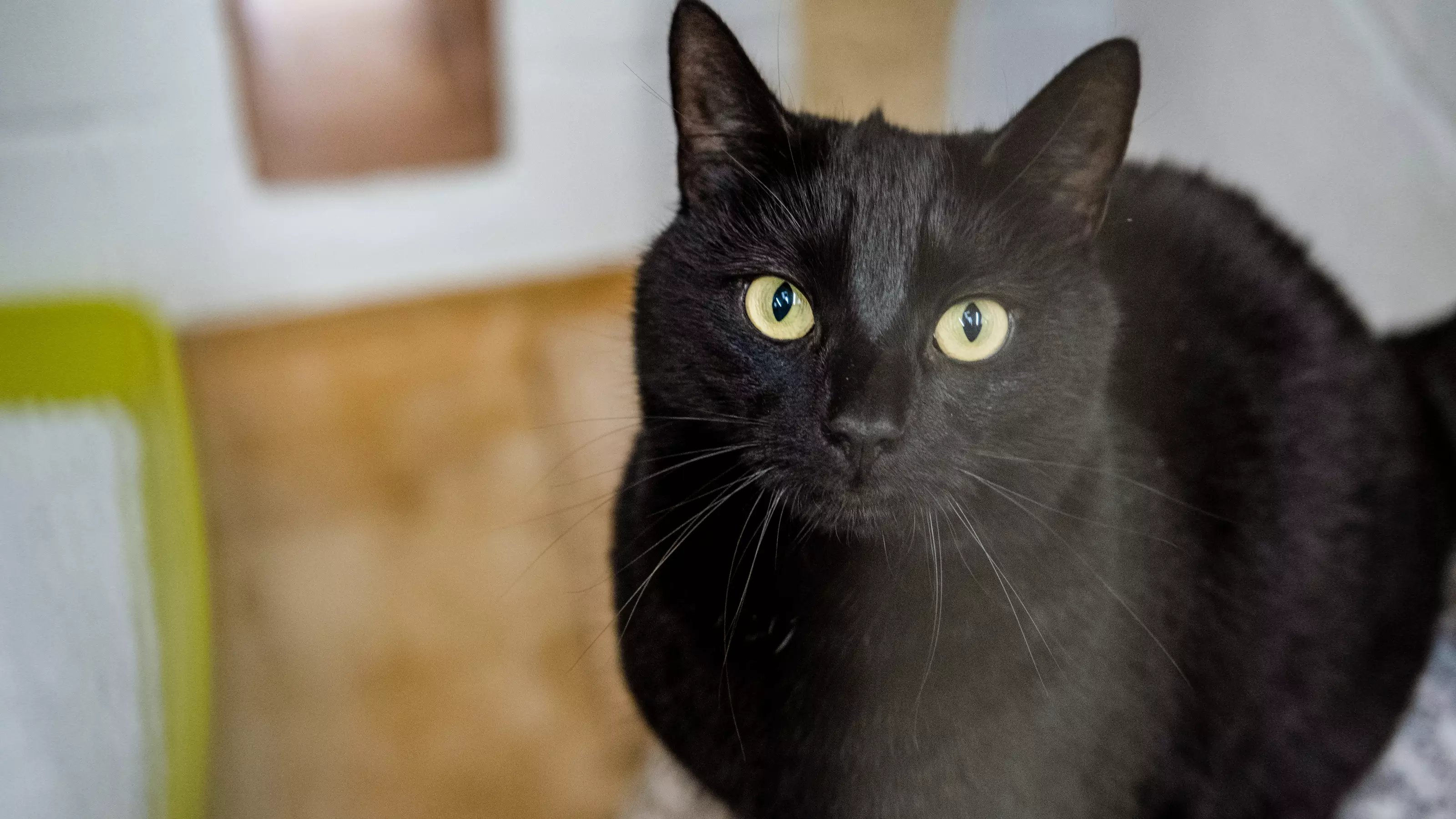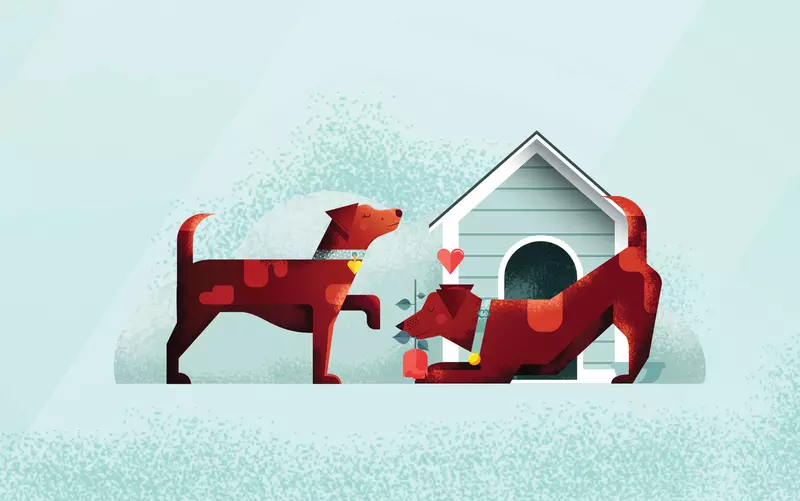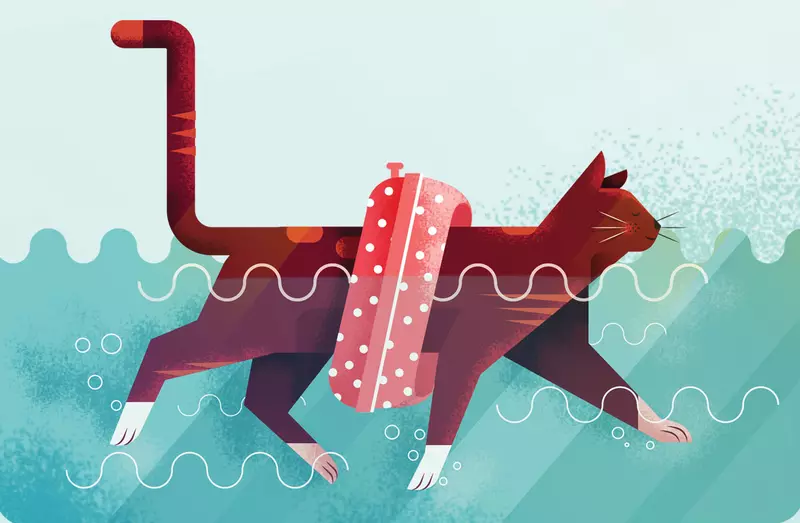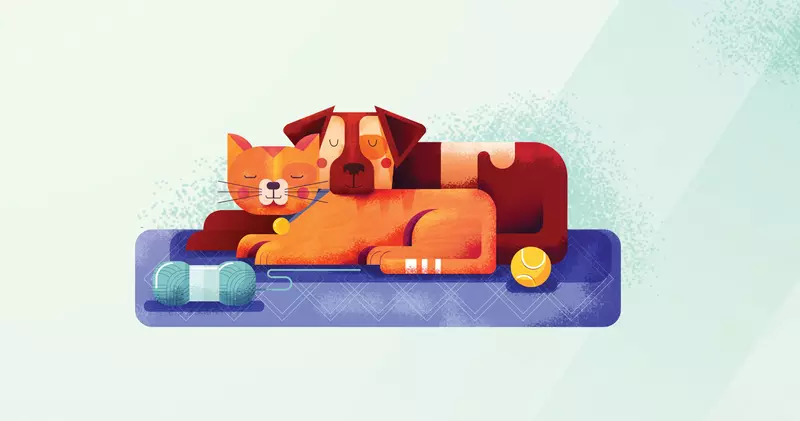
Fact or fiction? Pet myths explained
Discover the truth behind these 24 pet myths.
1. Dogs can fall in love
Probably!
Although we can’t ask dogs how they feel about us, the powerful bond between dogs and people is clear to see. Dogs develop very strong attachments to their owners, and the majority seem to miss their owners when they are not around.
Many studies also show that dogs release the hormone oxytocin in the presence of people they know – this hormone is linked to positive emotional states such as love and friendship.
2. Neutering my pet will change their personality
False.
There is a lot more to personality than just sex hormones, but some behaviours may be reduced, such as roaming, mounting, fighting or urine spraying depending on the species.
Read more about neutering your dog or cat.
3. Dogs can only see in black and white
False.
Although they can’t see the world in full technicolour like we can, dogs can see some colours. Their eyes detect fewer colours than ours, so their sight is similar to humans with colour blindness.
4. All cats hate water
False.
Most domestic cats are not big fans of water, but there are some exceptions. Experts think the reason most cats hate water could be because their coats don’t dry very quickly, which can leave them feeling pretty uncomfortable and cold.
Cats' ancestors also evolved in desert areas, where the land is barren and has very little rain, if any at all.
5. It's better for your female to have a litter before she is spayed
False.
There is no evidence from a medical or behavioural perspective that suggests that this is the case.
6. Horses have extraordinary memories
True.
They say elephants never forget. But studies have shown that horses also have an extraordinary memory, and can remember human friends after long periods of separation. They also have the ability to recall complex, problem-solving strategies for 10 years or more.
7. Cats only purr when they are happy
False.
Cats do purr when they're happy, but that’s not the only reason they produce this noise. They can also purr when they’re frightened, feeling unwell, in pain or as a way to provide comfort to themselves.
8. I need to show my dog who’s boss by being the pack leader
False.
Dominance based dog training is based on studies of captive wolves in the 1970s, which popularised the theory that ‘alpha’ wolves become the leader of the pack by being aggressive towards other wolves. But science has moved on and this theory has now been debunked.
Dogs should be treated with kindness and respect, and trained using reward based techniques.
9. You don't need to neuter same sex pairs of rabbits
False.
It's important to neuter your rabbits regardless of whether they are living in a same sex pair. Neutering can help your rabbits to live happy and healthy lives. It can reduce the risks of certain cancers, help your rabbits sustain a healthy bond and help them to become easier to handle.
10. Horses only sleep standing up
False.
When standing, a horse will sleep lightly, but horses do also need periods of deeper sleep and cannot achieve this while standing. Horses will lie down for a couple of hours every four to five days to get enough rest.
11. Dogs have their own unique ‘fingerprint’
True.
Only this unique print is not found on their paws, but on their nose. This nose print is as unique as a human fingerprint, and is so distinct that it can actually be used to identify them.
12. Dogs only eat grass when they are sick
False.
Dogs also eat grass because it’s tasty.
13. Cats always land on their feet
False.
More often than not, cats will land on their feet when they fall from a reasonable height due to their incredible instinctive 'righting reflex'. But, this is not always the case.
They need to be able to 'right' themselves when falling, which might not be possible. Even if they do land on their feet, they can still get seriously injured as their body may not be able to absorb the shock of the fall.
Every year Blue Cross vets treat cats that have become injured after falling from a height.
14. Rabbits should eat lots of carrots
False.
Rabbits should only be fed carrots as occasional treats. Their diet consists of plenty of hay and/or grass, leafy greens and small amounts of rabbit pellets.
15. Cats can see in complete darkness
False.
Cats are much better adapted to seeing in low levels of light than us, but they can’t see in the dark.
16. I won’t be able to show my dog if I have them neutered
False.
Changes in the Kennel Club regulations mean that neutered pedigree dogs can be shown.
17. You can’t teach an old dog new tricks
False.
Puppies’ and younger dogs' brains soak up new information like sponges and they learn quickly but, while it takes a little longer, you can train an older dog.
Some senior dogs develop a condition called cognitive dysfunction, which makes it harder for them to learn new tricks and can cause them to forget their training. Contact your vet if you notice changes in your dogs behaviour.
18. Rabbits have near to 360 degree vision
True.
With their eyes placed high and to the side of their skull, rabbits only have a small blind spot directly in front of their face. In the wild, this remarkable field of vision allows them to quickly detect predators approaching from almost any direction.
19. Dogs and cats are left or right handed
True.
Most pets use one of their front paws more than the other, in the same way humans are left or right handed.
20. Black cats are unlucky
False.
Black cats have been the subject of myth and folklore for centuries. In some countries, they are considered unlucky, while in others, black cats are said to bring good fortune.
21. Pets licking their wounds helps to keep it clean
False.
Letting your pet lick their wound is likely to do more harm than good. Your pet's mouth is often full of bacteria that can build up inside the wound, leading to infection.
Your pet can also cause additional damage to wounds, causing slow healing because they don't know when to stop licking.
Always follow your vet's advice to prevent your pet from licking their wound.
22. Rats are dirty animals
False.
Because rats can live in sewers in the wild, many people assume they are dirty animals. But that could not be further from the truth.
Rats enjoy grooming and are therefore one of the cleanest pets you can own. They are also intelligent, enjoy human company and make wonderful pets.
23. Cats are nocturnal
False.
Cats are crepuscular, which means they are most active at dawn and dusk. This is when hunting opportunities are rife and there’s enough light for them to see well.
24. All dogs and cats hate each other
False.
Although dogs and cats are often portrayed as enemies, if introduced carefully, they can actually get on extremely well.
Page details
Reviewed
• 18 June 2024
Next review
• 18 June 2027














